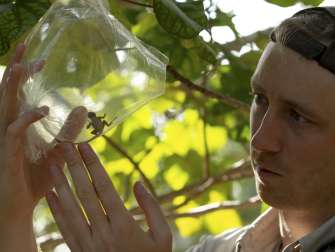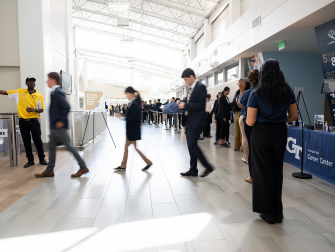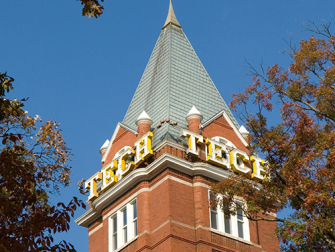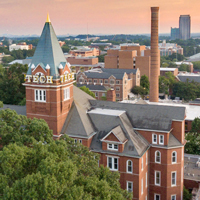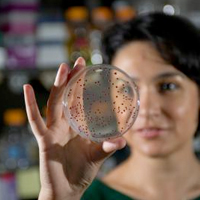College of Sciences

The College of Sciences at Georgia Tech cultivates curiosity, encourages exploration, and fosters innovation to develop leaders and scientific solutions for a better world. Discover more.
Experts In The News
New research shows that improving wintertime air quality in Fairbanks, Alaska — particularly in frigid conditions around 40 below zero Fahrenheit — may be less effective than intended.
Led by a team of University of Alaska Fairbanks and Georgia Tech researchers that includes School of Earth and Atmospheric Sciences Professor Rodney Weber, the researchers' latest findings are published in Science Advances.
In the study, the team leveraged state-of-the-art thermodynamic tools used in global air quality models, with an aim to better understand how reducing the amount of primary sulfate in the atmosphere might affect sub-zero air quality conditions.
The project stems from the 2022 Alaskan Layered Pollution and Chemical Analysis project, or ALPACA, an international project funded by the National Science Foundation, the National Oceanic and Atmospheric Administration and European sources. It is part of an international air quality effort called Pollution in the Arctic: Climate Environment and Societies.
Read the full story in the University of Alaska Fairbanks newsroom.
Phys.org September 9, 2024Despite the fact that Antarctica is extraordinarily difficult to get to, astronomers love it and have chosen it as the location for the IceCube Neutrino Observatory. What could possibly make such a remote location so desirable for space science that it’s worth all that trouble?
In this article, scientists including Georgia Tech's Brandon Pries from the School of Physics explain why the South Pole is such a hotspot for astronomers. The answer? At the South Pole, you can best view neutrons and neutrinos in space.
Pries compares the benefits of the South Pole to the North Pole. “The North Pole is more difficult because ice coverage there fluctuates,” explains Pries. “There is a foundation of bedrock underneath Antarctica that serves as a solid base for the IceCube instruments.” This bedrock is also why Antarctica is home to the South Pole Telescope, a radio observatory that helped take the first ever photo of a black hole.
Popular Science September 5, 2024Scientists have long argued that familiar, beloved music — which is considered predictable and safe — can help enhance our focus and learning. According to two new studies led by Yiren Ren, a PhD student in the School of Psychology, different types of music can do more than just aid concentration; they can also influence our emotions and even reshape old memories.
Ren's faculty advisor and co-author, Associate Professor Thackery Brown, says the studies approach the impact of music from different angles. “One paper looks at how music changes the quality of your memory when you’re first forming it — it’s about learning,” says Brown. “But the other study focuses on memories we already have and asks if we can change the emotions attached to them using music.”
Brown is also a cognitive neuroscientist who runs the Memory, Affect, and Planning (MAP) Lab at Georgia Tech.
(This also appeared in MedicalXpress, MSN, New Atlas, and Microsoft Start)
Earth.com September 2, 2024

